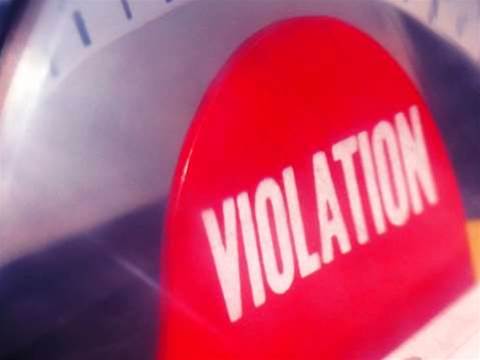The Office of the U.S. Trade Representative (USTR) has released the details on negations for the Anti-Counterfeiting Trade Agreement (ACTA), which is being formulated between governments in the US, UK, Australia, Canada, the European Union, Japan, Mexico, Morocco, New Zealand, Singapore, South Korea, and Switzerland.
The ACTA treaty would give sweeping new powers to government to search for products using stolen intellectual property or that which is deemed as under copyright.
According to documents some proposals included using customs officers to search for pirated music on laptops and media players, although this has now been by the EU.
"I am grateful to our partners in the ACTA negotiations for working with us in a joint effort to prepare this summary," said U.S. Trade Representative Ron Kirk.
"We look forward to taking more steps to engage with the public in our efforts to make trade work for American families."
Up until now the details on the treaty had been kept secret, and indeed had been for national security reasons. Other member states, such as Canada, have made public commitments to openness over the proceedings.
The document, although short on detail, shows some of the measures being considered. These include a reappraisal of the role of internet service providers in checking their customer’s use of pirated material and discussions of what rights people have to material for personal use.
“We were pleased to see this morning that the United States Trade Representative (USTR) released a summary of the elements being discussed as part of the proposed Anti-Counterfeiting Trade Agreement (ACTA),” said Gigi B. Sohn, president and co-founder of Public Knowledge.
“Public Knowledge and many other organisations have called for months for such disclosure and transparency in the secret talks. The dissemination of the six-page summary will help to some degree to clarify what is being discussed.”
“We look forward to increasing disclosure and transparency from our negotiators as the treaty discussions proceed.”




_(36).jpg&h=140&w=231&c=1&s=0)
_(28).jpg&h=140&w=231&c=1&s=0)





 iTnews Executive Retreat - Security Leaders Edition
iTnews Executive Retreat - Security Leaders Edition
 iTnews Cloud Covered Breakfast Summit
iTnews Cloud Covered Breakfast Summit
 The 2026 iAwards
The 2026 iAwards












_(1).jpg&h=140&w=231&c=1&s=0)



